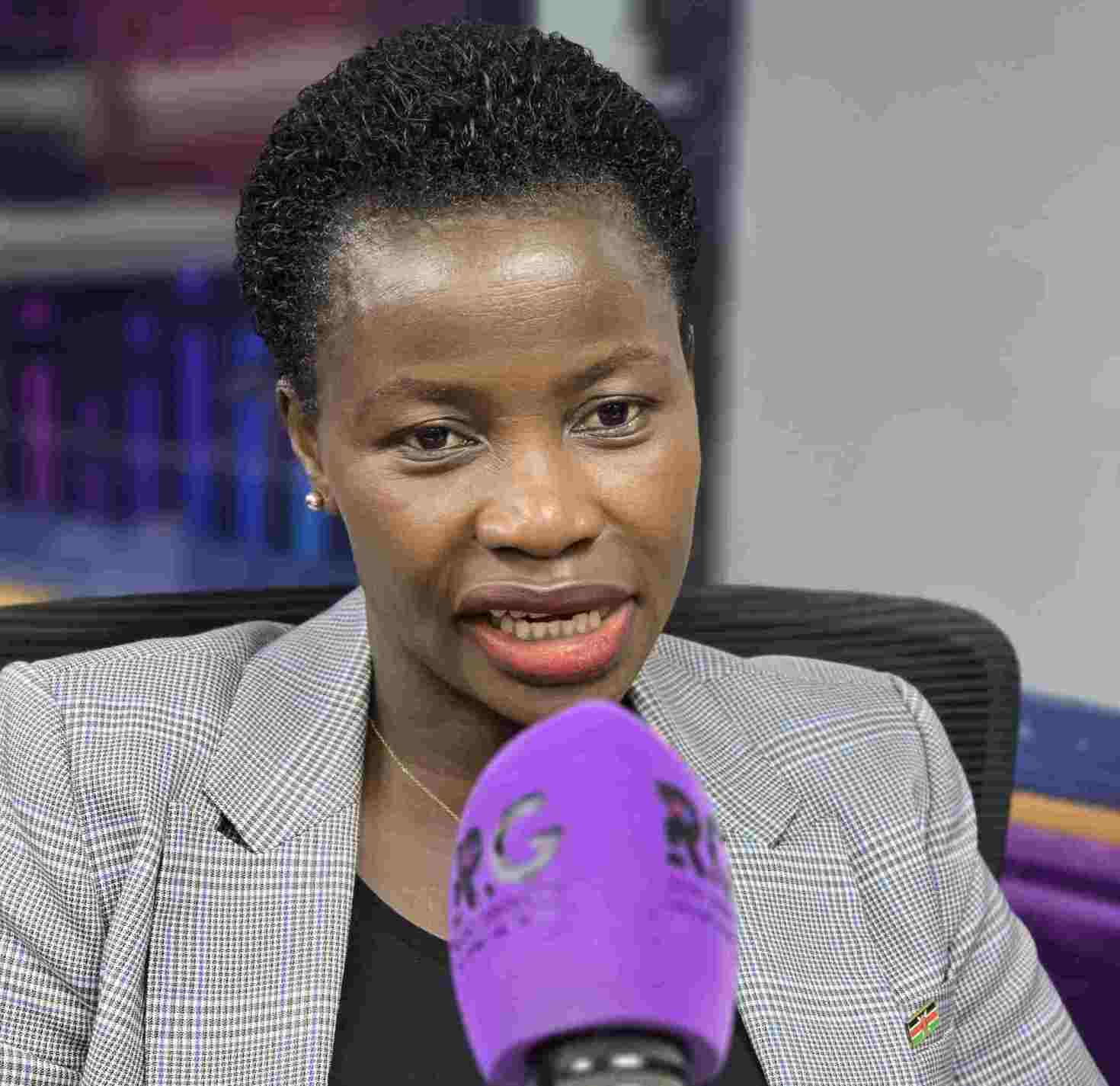The Hustler Fund was created to correct deep-rooted failures in the credit market that had excluded millions of Kenyans, especially women and youth, from financial access, according to Micro, Small and Medium Enterprises (MSMEs) Development Principal Secretary Susan Mang’eni.
Mang’eni explained that the government’s intervention was necessary because the private sector had been unable or unwilling to serve a large portion of the population at the bottom of the economic pyramid.
“The private sector is the one that does the financing of businesses. When you see government coming in, we come in just to correct a failure, a certain market failure,” she said on Thursday during an interview with Radio Generation.
Mang’eni said the Hustler Fund was introduced as a response to an environment where most small-scale traders lacked the traditional requirements needed to access loans, such as collateral and credit history.
She noted that this failure had left millions of Kenyans locked out of the financial system.
“Most of that segment of the population did not have credit history. In the bank, for them to give you an assessment on your credit worthiness, they look at two things , your ability and your willingness to borrow and pay. If they don’t have a KYC [Know Your Customer] of you, then you need to start establishing it," the PS added.
She added that the cost of credit for such individuals becomes much higher due to the risks associated with lending to people with no financial record.
The PS said this situation had worsened due to global and local shocks, including the COVID-19 pandemic, inflation, and economic disruptions caused by the Russia-Ukraine conflict.
She said small businesses bore the brunt of these crises, with many collapsing during the pandemic due to social distancing protocols and lack of customers.
“The people who get affected most are usually the small businesses,” she said.
Mang’eni also highlighted the problem of negative listing on the Credit Reference Bureau (CRB), explaining that even after one clears their loans, they remain in default status for at least seven years.
“Let me tell you, once you are negatively listed in CRB, even after you pay, you remain in default status for a period of not less than seven years. No way out,” she said. “And this is the truth that many people don’t know.”
She said by the time President William Ruto took office, around 8 million people had already been negatively listed, most of them in their productive years. This, she said, had made their participation in the economy difficult and created a major barrier to growth.
Mang’eni revealed that the government had to act quickly to address the crisis. In the first week of taking office, Ruto met with banks and telecom companies to explore a solution.
“He called the banks, he had a meeting with the telcos who provide channels for digital lending, and they sat together saying, ‘No, this is a big failure. We cannot preside over an economy with these people locked out. We’ve got to do something.’”
Banks and telecom companies agreed to offer expertise and technology to help co-create the product but declined to invest money, saying they were not ready to take the risk again.
It was then that the government decided to offer financial support while partnering with the private sector to roll out the Hustler Fund.
“The objective of the Hustler Fund was to offer a second chance to those people to prove, to demonstrate, and we did this in partnership with the private sector so that they can start regaining trust in the people whom they had condemned,” said Mang’eni.
She said the fund also targets young people turning 18, offering them a chance to begin building their credit history through responsible borrowing.
Unlike digital loans that only become visible when someone is negatively listed, Hustler Fund was designed to help borrowers develop a visible and positive credit practice.
“We want to crystallize your credit behavior to become your second collateral,” she said.
To qualify for the Hustler Fund, one must be at least 18 years old, have a valid national ID, a registered SIM card, and a mobile money account with Safaricom, Airtel or Telkom. Access to the fund is through dialling *254# on a mobile phone.
During its launch, the government warned borrowers against defaulting. If a customer fails to repay within the set time, they are given 15 extra days before the interest rate is raised from 8 percent to 9.5 percent.
Continued default results in the freezing of the borrower’s Hustler Fund account.
PS Mang’eni maintained that the fund’s goal is not just to give money, but to build responsible financial habits and open the door to economic participation for those who had been shut out.
“This behavior has to be nurtured the same way we do education for our population,” she said. “We took it upon ourselves to rehabilitate.”
